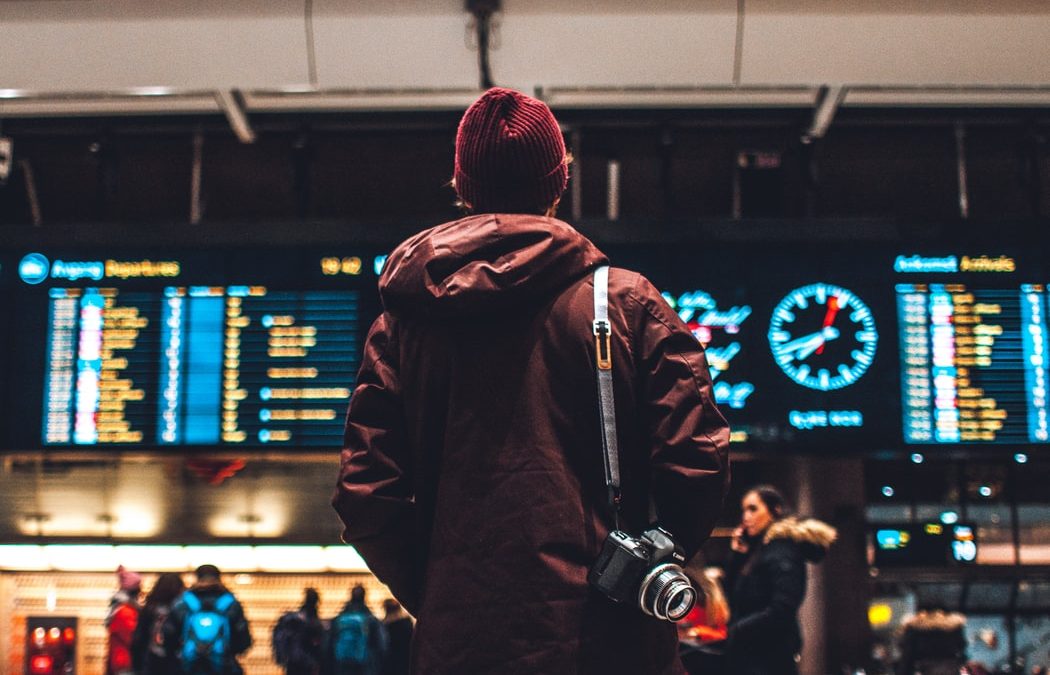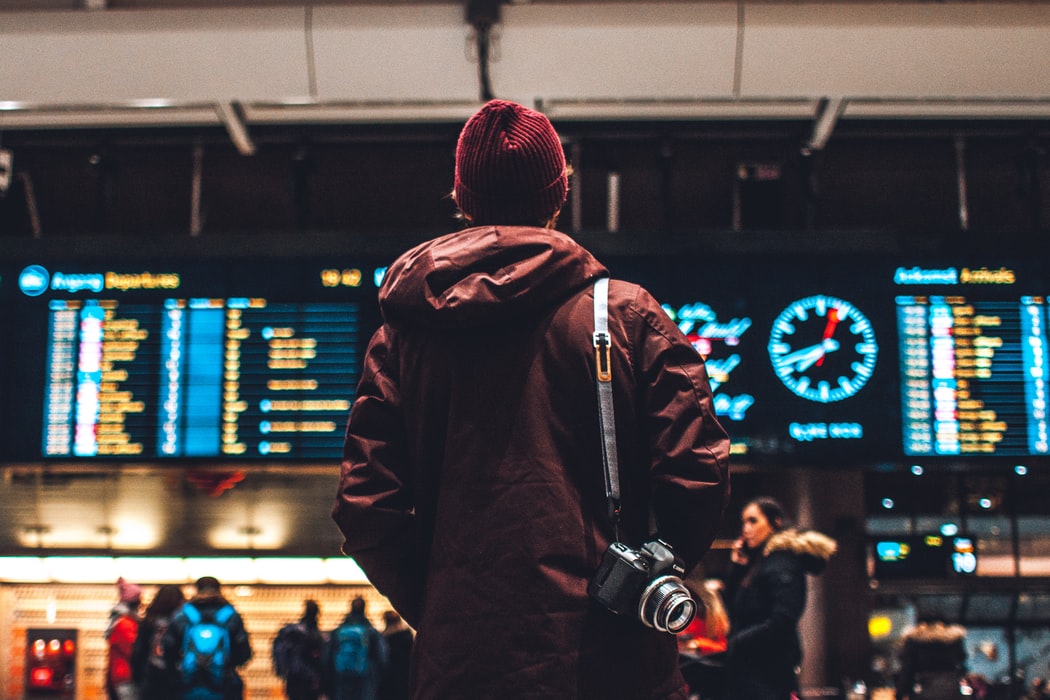
Apr 29, 2019 | by Rabbi Lisa Goldstein, Former Executive Director, Institute for Jewish Spirituality

In our people’s mythic calendar, this is the time of year that we are journeying from the Red Sea to Sinai, from Passover to Shavuot. For me the annual pilgrimage started, as it does most years, when I made the journey to my parents’ home for Passover. And as usual, each time I boarded the plane, coming and going, I whispered the traveler’s prayer to myself.
I love tefillat haderekh, the traveler’s prayer. I love how it asks that we arrive at our desired destination alive, in joy and in peace. I love how it names a list of crazy uncontrollable things that happen in the world and asks God to protect us from them. I love how it asks that we might be seen with loving eyes by all who meet us and that our endeavors be blessed. I love how it makes a claim that our prayers are heard.
I must confess that it felt particularly poignant to be saying this prayer in the aftermath of the shooting that happened at the Chabad synagogue in Poway this week. I heard all the piercing questions arise: How can we reconcile the reality of our violent world with the claims that God is listening to our prayers, that there can be such a thing as safety, such that we can actually trust strangers? The traveler’s prayer seems suddenly unspeakably naïve.
And yet, I know that the traveler’s prayer comes from a time when traveling itself was a terribly dangerous thing to do. Instead of traffic jams and flight delays, the list of possible obstacles on the road includes ambushes, bandits and wild animals. It is precisely when we are feeling most vulnerable that we can open our hearts in prayer.
The truth is I don’t say the prayer because I believe it will actually keep the plane in the sky. I say it in order to mark the fact that I am on a journey that is out of my ordinary routine. It is a way of setting an intention for new experiences, to remind myself that the destination is always life, joy and peace. It’s a way of taking sober stock of the precarious state of the world, of the common fragility of life and all the things that make me – and all of us – so terribly vulnerable. And it’s a way of reminding myself that it is a practice to trust that others will in fact deal kindly and generously with me, even when I am a stranger on the road. (And most of the time, they really do.)
May our journeys this season, both physical and spiritual, be blessed along with all of our endeavors!
Jun 19, 2013 | by Rabbi Lisa Goldstein, Former Executive Director, Institute for Jewish Spirituality

Summertime – the great annual habit-breaker. If we are lucky, we have the opportunity to look up from our usual routine and try something new. Often that newness involves travel. And it’s curious: some of us sit still to try to reconnect with clarity and insight. But there are some insights that are easier to come to through motion. It’s like when we stand in front of a wooden fence. When we stand still in front of it, all we see are the slats, blocking what is on the other side. But when we walk by it, we can often glimpse the garden through the cracks between the slats.
And yet, the moving itself is often the least pleasant part of the traveling. We like to arrive at our destination, but dealing with traffic, lines, security and all the rest of it is a whole different story. It can feel more like the fence, slowing us down, herding us along, keeping us out.
Reciting tefillat haderech, the traveler’s prayer, can serve as an intention to help us transform the often harried experience of traveling. The traditional Hebrew asks God to guide us in peace, to let us take each step in peace and to help us reach our desired destination alive, joyful and in peace. It asks that we be kept safe from any kind of danger along the way and that we encounter only kindness and graciousness from those we meet. Here is a link to the prayer: http://en.wikipedia.org/wiki/Tefilat_HaDerech
Imagine if we took this on as a blessing practice. If we began each journey with this blessing, evoking that sense of peacefulness and security for ourselves, then, from an inner place of joyfulness and peace, we might be able to bless all those people with us in those endless lines and crowds – perhaps even the really annoying ones – with the same blessing. May you be guided in peace! May you reach your destination safely! May you encounter only kindness and graciousness! May your prayer be heard!
That kind of inner spaciousness can transform the burden of travel into an opportunity to enjoy each encounter. It can tear down the fence around the heart altogether. (And of course, the summer traveling– the moving from place to place, the crowds, the aggravation, the pleasure, all of it – is nothing less than a facet of – and practice for – our life journey, in which we can only pray to reach our destination in peace.)



